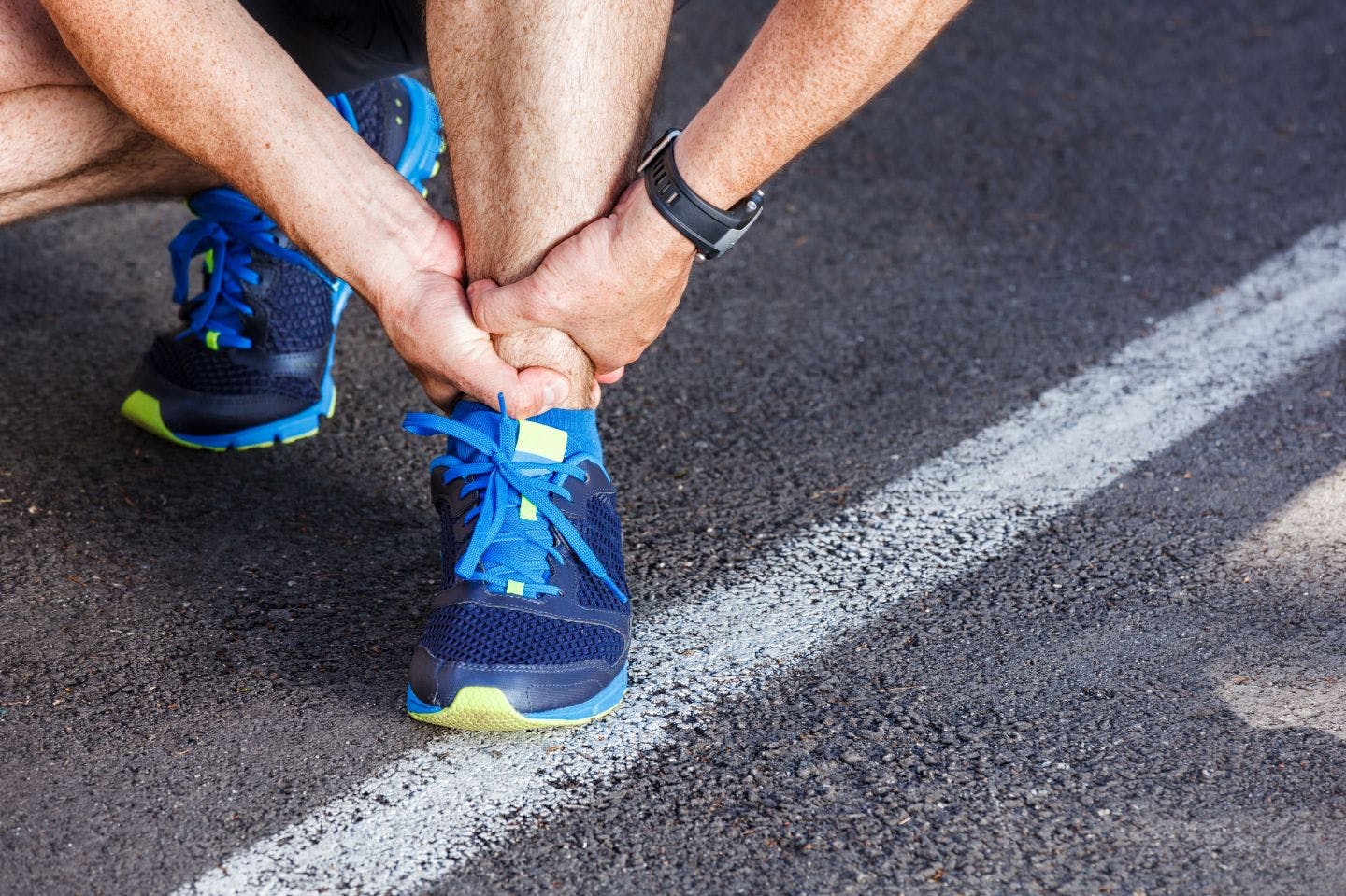By: Brandon Stanley PT, DPT, Cert. DN

Achilles tendinopathy, formerly known as Achilles tendonitis, is a common condition that affects a wide variety of individuals. It is common in runners and middle-aged weekend warriors. Achilles tendinopathy is usually not related to a specific mechanism of injury. But rather, inflammation of the Achilles tendon (thick band of tissue that connects the calf muscle to the heel) is generally caused by a variety of factors including overuse and repetitive trauma.
The Achilles tendon transmits force from the calf muscle down to the foot when a person pushes the foot off the ground. Typically, Achilles tendinopathy occurs as a result of increased demands on the tendon such as a recent increase in activity level. If the increase in demand is greater than the ability of the tendon to tolerate then dysfunction will begin to occur. Repetitive trauma to Achilles tendon will likely result in chronic Achilles tendinopathy.
Symptoms you might experience with Achilles tendinopathy are tenderness in the heel or higher up the Achilles tendon, pain and stiffness with walking (usually theat it's worst in the first few steps), tightness within the calf and swelling within the midportion or base of the tendon. Seeking help from a physical therapist can help relieve your symptoms.
Physical therapist are movement experts. Your physical therapist will assess your foot posture, strength, flexibility and movement patterns. During your examination you will be asked to stand, walk, squat, ascend/descend stairs and perform heel raises. Imaging is typically not needed to properly diagnose Achilles tendinopathy. Typically, the examination findings will be sufficient to accurately diagnosis.
Your physical therapist will work with you to develop an individualized treatment program to help you achieve your specific goals in the safest and most effective way possible. Your treatment plan will include the use of different pain-relief strategies, manual therapy to gently address any joint restrictions, therapeutic exercises to improve range of motion and muscle strength deficits. Functional training will also be included to fully ensure you are able to transition back to full independence.
At Professional Rehabilitation Services, we treat a wide variety of musculoskeletal and neurological conditions using the latest in evidence-based therapies provided by highly credentialed physical therapists. Professional Rehabilitation Services has eight convenient locations in Pawleys Island, Murrells Inlet, Surfside Beach, Market Common, Myrtle Beach, Carolina Forest, Conway, Little River and Longs.
For further information on this or other related topics you can contact Richard DeFalco, DPT, OCS, CSCS, CWcHP at Professional Rehabilitation Services (Myrtle Beach) (843) 839-1300, Brian P. Kinmartin PT, DPT, MTC, STC, OCS, CWcHP (Pawleys Island) (843) 235-0200, Richard A. Owens, MPT, OCS, Cert. SMT, CWcHP (Surfside) (843) 831-0163, Jill P. Phelan, PT, DPT, Cert. DN (Conway) (843) 773-3031, Lisa O'Brien, PT, DPT, Cert. DN (Murrells Inlet) (843) 314-3224, Samantha Crisafulli PT, DPT (Carolina Forest) (843) 282-0440, Zach Daniels PT, DPT (Market Commons) (843) 213-6338, Brandon Stanley, PT, DPT, Cert. DN (Little River) (843) 281-4222/(Longs) (843) 491-0388 or visit our website at www.prsrehabservices.com where you can learn more about the company and even download a referral form for your physician to fill out. You can also call and schedule a free 15-minute consultation.
